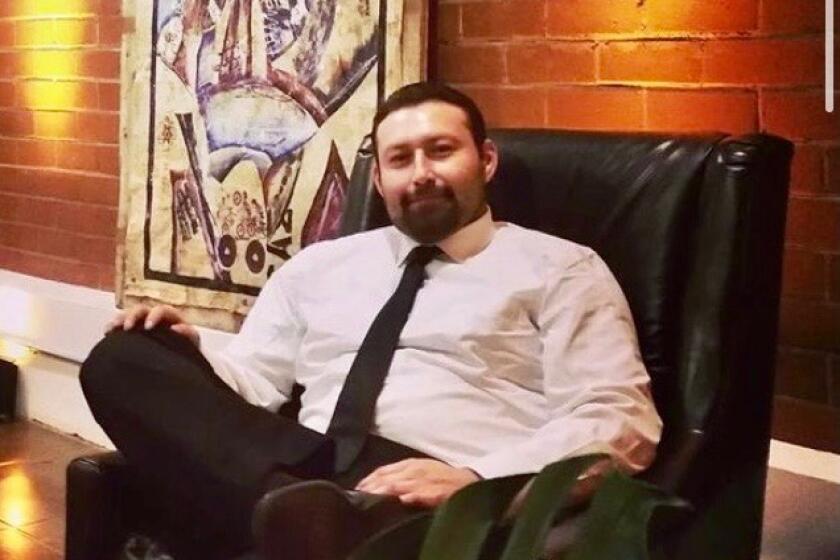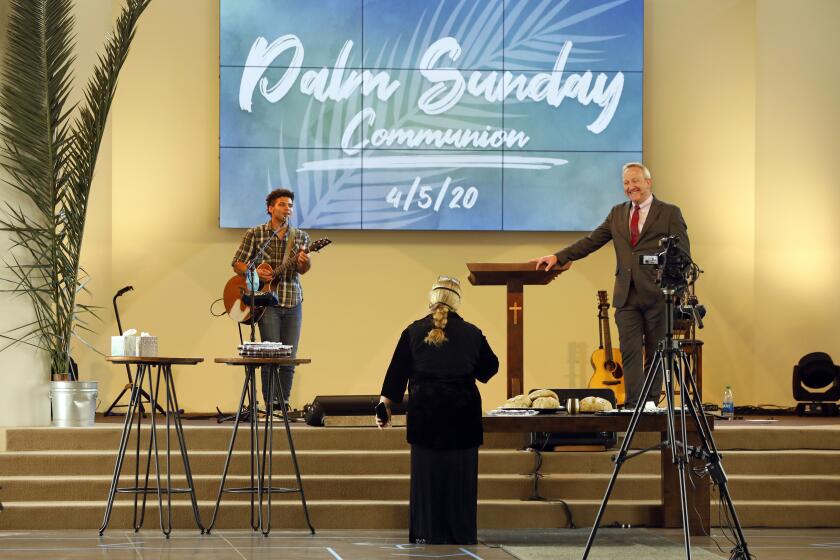Overtime spiked while Brown was mayor of Oakland
Reporting from Sacramento — When Jerry Brown left the mayor’s office in Oakland to become California’s attorney general, perhaps nobody was sorrier to see him go than Kenny H. Lau, a soft-spoken building plans reviewer who more than doubled his annual salary with overtime seven times during Brown’s tenure, from 1999 to 2006.
In 2001, Lau’s best year, he supplemented his $76,137 base salary with $190,647 in overtime and $4,909 in other extra pay, pushing his total compensation to $271,694, city records show. He averaged $226,000 annually over the seven years.
Logging long hours in his nondescript cubicle checking blueprints for handrails and the proper width of stairwells, Lau, 56, benefited from a crush of work as developers clamored to get plans approved and contribute to Brown’s top priority for Oakland: a revitalization of downtown that he hoped would drastically reduce crime, improve public safety and attract 10,000 relatively affluent new residents to the downtrodden city.
Lau was not the only city worker to profit from that vision. Oakland’s generosity with overtime during Brown’s terms, his critics say, played a significant role in boosting his popularity with public employee unions, a key ally in his future runs for higher office, including his current campaign for governor.
In all, 82 full-time employees doubled their annual salaries with overtime at least once during Brown’s time as mayor, city payroll records show. Twenty-one employees took home more than $100,000 in overtime in a single year; 333 earned more than $50,000 in overtime in single year. Of the roughly 4,000 city employees making at least $20,000 in base pay, 681 increased their annual salaries by 50% or more with overtime in at least one year of Brown’s tenure.
Among those who doubled their salaries at least once were 70 police officers and firefighters. In 2004, James A. Williams, a chief in the Fire Department’s communications unit, added $129,456 in overtime to his $129,396 salary. Police Officer Sullivan Stallworth Jr. boosted his $87,348 salary with $151,083 in overtime and $13,736 in other payments in 2006, the year he retired as a patrolman, records show.
Both departments had dozens of unfilled jobs on the books during Brown’s term, which saved the city money but also created overtime opportunities for members of the politically powerful public safety unions.
“We were understaffed and overworked,” said Stallworth, 54. “I think [Brown] was just trying to make sure the community was served properly.”
Stallworth’s annual pension payment is $109,596, said Ed Fong, a spokesman for the California Public Employees’ Retirement System. Although overtime does not count toward the pension, dozens of other extra payments, including unused sick days, do count for local law enforcement officers, Fong said.
Oakland’s downtown revitalization remains a work in progress, but supporters praise Brown’s influence.
“He put us on the map for developers,” said Jane Brunner, president of the City Council. “Oakland’s downtown is different now; it has housing; it has great restaurants; it’s starting to have a club scene for young people.”
The street-level politics Brown practiced in Oakland helped bolster his standing among public employee unions, critics argue. Statewide organizations representing local police and firefighter unions have contributed more than $2.5 million to help his gubernatorial campaign, state records show.
“Brown looked at the police union president like he had a dollar sign on his forehead,” said Harold Pendergrass, treasurer for Brown’s mayoral reelection campaign in 2002 and a Brown appointee to several city boards, including the school board and the Citizen’s Police Review Board. “He gave [the union] what they were looking for and, of course, he did it with an eye to his own political future.”
Pendergrass, whom Brown also appointed to the board of the Oakland School for the Arts, a charter school that Brown launched and nurtured, said the two eventually had a falling out over the school’s management and Brown asked him to resign. Pendergrass is a registered Republican and has done paid consulting work for the state party.
Brown campaign spokesman Sterling Clifford brushed aside the suggestion that there was any political motive behind the overtime paid to Oakland’s public safety employees when his boss ran the city.
“Jerry was mayor of a city whose citizens wanted it safer,” Clifford said. “There’s tension between that goal and police and fire overtime in every city in America.”
Oakland now has one of the best-paid police forces in the state, Brunner said, because Brown and the council were willing to spend money to quell rampant gang violence and advance the cause of downtown redevelopment.
The city, which has always struggled with a high crime rate, was tired of losing senior officers to other municipalities.
“Oakland is not an easy place to be a cop,” Brunner said. “In order to compete with other cities and not have turnover, we made the decision to pay well.”
Nevertheless, the number of homicides in Oakland climbed during Brown’s years as mayor. There were 67 killings in 1999 when Brown took office and 148 in 2006, his last full year on the job, according to Oakland Communications Director Karen Boyd.
Roland E. Smith was city auditor while Brown was mayor. Although he applauded the effort to fight crime, the consistent ability of city police officers to double their salaries with overtime, and overtime going to top officials in the police union, concerned him.
He asked for a civil grand jury to investigate in 2005, saying his attempts to get overtime records had been thwarted by the police chief that Brown had appointed and he could not get help from the mayor. “Jerry Brown wanted nothing to do with my office,” Smith said.
The Alameda County grand jury had similar problems getting information, noting in its June 2006 report that its “work in examining corruption in [the Oakland Police Department’s] overtime system was severely restricted by an alarming lack of records.”
The panel found, however, that 20% of the officers meant to be on patrol on any given day called in sick, requiring another officer earning overtime to cover the shift. The union contract in effect at the time, negotiated under Brown, allowed police officers up to 60 paid sick days per year. The standard statewide for public employees and for other employees of Oakland was 12.
“I was one of the highest-paid police officers in Oakland,” acknowledged Bob Valladon, who was president of the police union and testified before the grand jury. Now retired, he said he earned much of his pay working overtime on special projects Brown encouraged to try to make the city safer, including undercover drug busts, DUI checkpoints and campaigns to ticket drivers for not wearing seat belts.
High pay for public employees, especially the politically powerful police and fire unions, is a contentious issue in the gubernatorial campaign.
Both major candidates have proposed significant changes to the state pension program. Brown has said he wants to start calculating pensions based on an average of three years’ pay instead of one year, which would make it harder to “spike” a pension with one-time payments such as accumulated sick days. Whitman wants to move all state employees, except police and fire, to a private-sector-style 401(k).
In Oakland, it wasn’t just overtime pay that boosted paychecks. An audit done by Courtney Ruby, who succeeded Smith as city auditor in 2007, found that employees had been paid $3 million more than they were owed for unused vacation and sick time in the two previous years. The audit also noted that the city had paid out hundreds of thousands of dollars in “employee recognition awards” — ranging from $75 to $10,000 per award — without formal guidelines spelling out who deserved them, or why.
Nobody, however, benefited more from Oakland’s pay policies than plans reviewer Kenny G. Lau. Reached on his cellphone, Lau declined to discuss his compensation. But his boss, Ray Derania, deputy director of Oakland’s Community and Economic Development Agency, said he earns the money.
“He’s just an incredible fellow, he works phenomenal hours, much more than I could possibly do,” Derania said.
Lau might also be Exhibit A in Brown’s argument that paying generous overtime was not motivated by the hope of future campaign support: State records show no evidence that Lau has ever given a dime to a political candidate.
More to Read
Sign up for Essential California
The most important California stories and recommendations in your inbox every morning.
You may occasionally receive promotional content from the Los Angeles Times.











